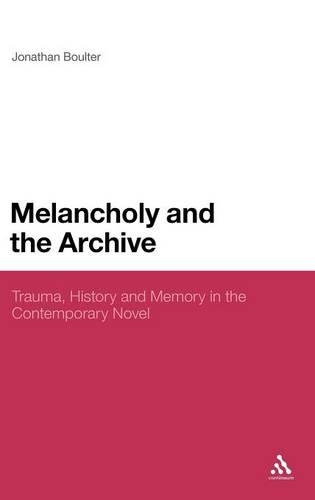
Melancholy and the Archive: Trauma, History and Memory in the Contemporary Novel
(Hardback)
Available Formats
Publishing Details
Melancholy and the Archive: Trauma, History and Memory in the Contemporary Novel
By (Author) Dr Jonathan Boulter
Continuum Publishing Corporation
Continuum Publishing Corporation
19th May 2011
United States
Classifications
Professional and Scholarly
Non Fiction
Literary studies: c 1900 to c 2000
809.304
Physical Properties
Hardback
224
Width 156mm, Height 234mm
Description
Melancholy and the Archive examines how trauma, history and memory are represented in key works of major contemporary writers (David Mitchell, Paul Auster, Haruki Murakami, Jose Saramago). The book explores how these authors construct crucial relationships between sites of memoryGCothe archive becomes a central trope hereGCoand the self that has been subjected to various traumas, various losses. The archiveGCobe it a bureaucratic office (Saramago), an underground bunker (Auster), a geographical space or landscape (Mitchell) or even a hole (Murakami)GCobecomes the means by which the self attempts to preserve and conserve his or her sense of history even as the economy of trauma threatens to erase the grounds of such preservation: as the subject or self is threatened so the archive becomes a festishized site wherein history is housed, accommodated, created, even fabricated. The archive, in Freudian terms, becomes a space of melancholy precisely as the subject preserves not only a personal history or a culture's history, but also the history of the traumas that necessitates the creation of the archive as such.
Reviews
"In this original, lucid and stimulating book Jonathan Boulter provides a fascinating synthesis of work by four major contemporary novelists from different cultures across the globe. His chapter on Saramago is a refreshing and innovative study of three of his major novels and is surely a major new contribution to understanding of his work." -- David Frier, Senior Lecturer in Portuguese, University of Leeds, UK
Author Bio
Jonathan Boulter is Associate Professor of English at the University of Western Ontario, Canada.
